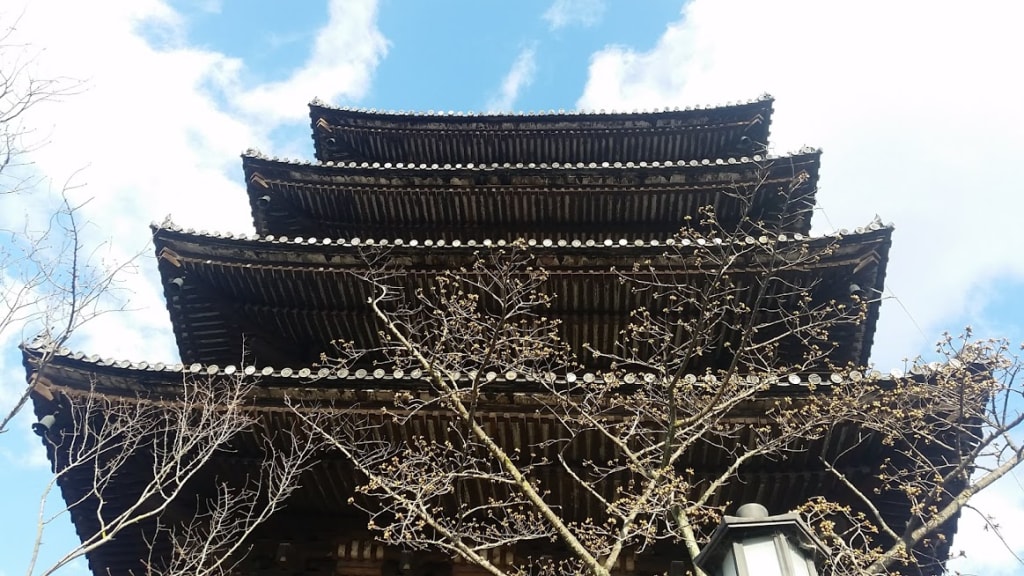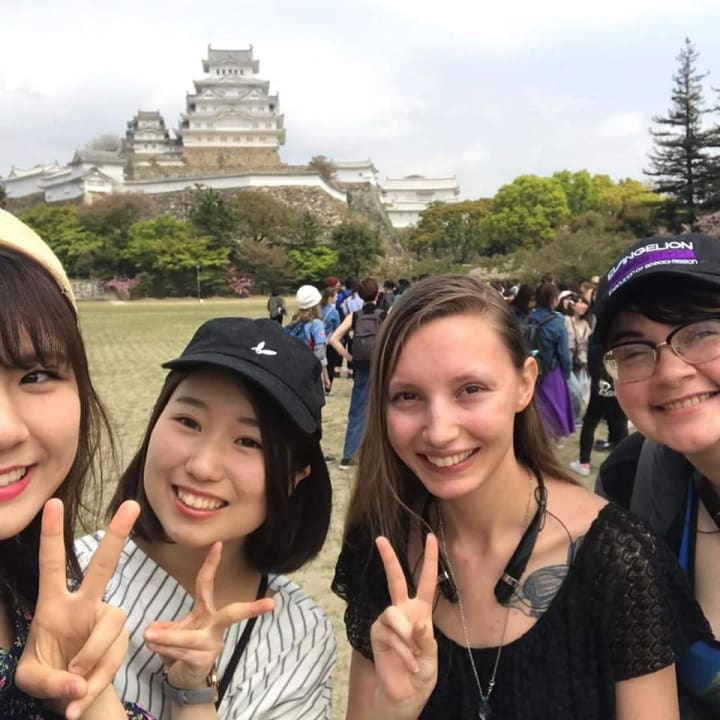
Have you ever had the desire to study abroad or take a quick trip to the wonderful country that is Japan? Or perhaps you’ve thought about starting life anew in a foreign country that offers a historical culture intermixed with the advancing new-age technology of the 21st century. If this is the case, then this may be the article for you! Before booking your flight, packing your bags and heading off on a fantastic journey that is sure to stay in your memories for the rest of your life, here’s 20 pieces of advice and general things that you should know before traveling to Japan.
Perhaps the best way to start things off would be to state something that should be obvious but often fails to be for most people. Many people come here excited to explore Japan but often leave disappointed because they had expectations that were far too high to ever be met. If you’re going to come to Japan, be open-minded about how it’s not going to fit every stereotype and rumor that you’ve been led to believe about it. A lot of people go to Japan believing that the entirety of the country is this futurist wonderland, like in all of those sci-fi movies. Although it does have its advanced technological aspects, it ISN’T the entirety of Japan that is like that; in fact it’s mostly just the major touristic spots that are typically that way. A lot of people also head off to Japan thinking the exact opposite, that it’ll be like stepping into a land that has been preserved by history: they’ll see samurai, sumo wrestlers, ninjas and geishas walking around in their kimonos everywhere. That is also NOT the case.
With that being said, I can tell you that this is going to be a pretty lengthy piece, so strap yourselves in and prepare for 20 pieces of advice and general things that you should know before traveling to Japan
1. I don’t know what the bicycling situation is like in other parts of the world, besides the UK, but in Japan, bicyclists will use the sidewalks alongside normal pedestrians. The sidewalks are already pretty small, and considering how crowded it can get, things can get a bit scary when you find yourself having to play chicken with a bicyclist on the sidewalk. What could make things even worse is if you find yourself having to play chicken with a bicyclist while an inconveniently placed rail divides the sidewalk in half.
Always have one ear clear of any headphones or earphones so that you can hear the bicyclists approaching you from a distance, that way you can prepare yourself to move out of the way. Japanese bicyclists will tend to not move out of the way for you, so if you find yourself in the position of playing chicken with them and you think you’ll have the chance at winning… you won’t! They will ram you into the concrete OR stop dead in their tracks right in front of you and wait for you to step to the side for them (I have a personal story that goes with this situation that explains why I have such an undying H.A.T.R.E.D for bicyclists in Japan, but it’d take centuries for me to write so I’ll leave it out).
2. Speaking of the rails, while you're keeping your eyes and ears open for approaching bicyclists, also keep your eyes open for those rails. There may be several within a single block, and each of them could serve a deadly blow to your ego if you ever run into them (This happened to a friend of mine TWICE. Once he nearly had his jeans ripped open after he had walked over one without noticing it was there due to the lack of streetlights within the vicinity of where he had been walking. The second time he had been with a large group of his friends and had failed to pay attention to his surroundings; he ended up running into one of them, which ultimately caused him to topple over it like a rag-doll. I was there to witness both of those incidences, and each time served to a case of him becoming the laughing-stock of his friend(s) for weeks.).
3. Bring a small bar or bottle of soap that only you will use and carry it with you in your personal purse or bag because many of the public Japanese bathrooms DO NOT have soap; if they do then, it’s usually a single bar of soap that everyone who has been in the restroom has used. YUCK!
4 & 5. This isn’t an experience that I had because I did research before traveling, but make sure that you bring a laptop that will work in Japan and make sure that you have a phone that is unlocked. There are many laptops that WILL NOT work once you try to convert them to work with the Japanese… (I forgot what it’s called)… computer systems… Luckily my laptop is an ASUS, which works wonderfully in Japan. Unfortunately, I don’t know what other laptops work in Japan after being brought from other countries, so I can’t help you much by telling you which laptop to search for before you go. If your laptop isn’t compatible to work in Japan, then you’ll have to buy one in Japan (which could be a hassle because you’ll have to convert it to function in a language that you do understand).
As for the phone, unless you have worldwide coverage, you’ll need to order a SIM to put in your phone so that it’ll work while you’re abroad. Many international students weren’t aware of either of these things and found out that their phone was locked, so they couldn’t remove the original sim and put the Japanese one in. In the end, they all had to buy new Japanese phones (which is a pain) or they had to buy new laptops.
When ordering a SIM, if that’s the route you’re going to take, you have the choice of Data only or Voice and Data. Prices will vary depending on the provider you’re going through, how long you intend to use their SIM, and how much data + voice calling you want to have each month. I’d personally recommend that you go through SakuraMobile (the provider I’m using).
6. It is rude to eat or drink while you are walking around or sitting in public. On a hot summer or fall day this will REALLY SUCK because you’ll want nothing more than to take a few swigs of your water, or whatever beverage you have, to cool you down. There will also be days where you want to rip open one of your snacks and eat as you’re walking or while you’re waiting for the train or bus, but you can’t, because it’s rude.
7. Blowing your nose in public is EXTREMELY rude. DO NOT blow your nose in public, EVER! If you find yourself to be in a pickle because you have allergies or have a runny nose, you better run to a convenience store and buy yourself a good pack of surgical masks to put on over your face. It is considered a kind and considerate thing to do, especially if you are sick, because no one wants to catch or spread germs.
8. Make sure you know where you can use your credit card to pull out cash because Japan is a cash-based country. It is RARE to find a place that will take credit cards, especially foreign credit cards. AGAIN, this could be where convenience stores are of convenience to you. Convenience stores will often have an ATM within them that accepts credit cards from various countries that you can use to get cash from, so long as you pay an exchange fee for the transaction. Be aware that, if these ATMs do accept your card, you know how much you can withdraw within a 24 or 48 hour period because it’d suck for you to spend all the money you have while thinking you can just withdraw more once you run out only to find out that you’ve maxed out how much money you can take out within the specified 24-48 hour period.
9. CROWDS!!!!!!!!!! If you hate crowds, you’ll hate Japan. Even if you don’t hate crowds, you’ll simultaneously learn to hate crowds but learn to live with them at the same time during your stay. If you think Japan is crowded based off of what you’ve seen in animes, movies or TV shows or based off of rumors that you’ve heard from friends, family, or from online sources and you wonder if it can really be that crowded… yes it is. IT’S WORSE!!!! The rumors about being crammed against each other, packed in the trains or buses like a can of sardines is NO JOKE!!!!
If you’re a person who needs their personal space… good luck finding it in Japan, most specifically when on public transit. Tokyo, by far, is the ABSOLUTE WORST when it comes to crowds.
10 & 11. Food is CHEAP and food is FRESH!!!! You will find that the convenience stores have pre-made foods that cost anywhere from $1 USD to $12. These include pasta dishes, salads, soups, miscellaneous snacks, sweets, drinks… you name it!! If you look at the packages, you’ll often find that NONE of the dishes are older than the exact day that you’re at the store. A good way to tell if a dish is older than 24 hours when you find a red stamp on their packaging that states “20%” or “20cents.” This means that you get 20cents to 20% off of that dish due to how “old” the dish is. In the entire 10 months that I’d lived in Japan, I had never seen a pre-made convenience store dish that was still on the rack that was 2+ days old.
12. Convenience stores ARE ACTUALLY CONVENIENT! Not only do they have a variety of fresh food and the usual chips and other junk food to choose from, but they also have microwaves that you can use for a small added charge to your total if you wish to have a dish heated up for you on the spot! They will also provide you with a choice of chopsticks, a fork and/or spoon as well as a damp hand towel to clean your hands off with once you’ve finished your meal.
13. Japanese people are polite. When you enter a store or restaurant, you will hear the word "irasshaimase," which means “welcome,” and they will bow to you. Japanese people will also apologize when approaching you or after bumping into you by saying either “sumimasen” (excuse me/I’m sorry) or “gomennasai“ (I’m sorry) depending on the nature and severity of the situation. In the morning you’ll be greeted with "ohayou gozaimasu," or sometimes just “ohayou” (good morning). As for the afternoon and evening, you’ll hear the words “konnichiwa“ (good afternoon/early evening), or “konbanwa” (good afternoon).
The Japanese are also extremely helpful and will do their best to help you if you approach them to ask a question. Do keep in mind that many Japanese don’t speak much English, or any other language, so they may have trouble explaining what they’re trying to get through to you. When this happens, they’ll typically try and settle for repeating what they’re trying to say in Japanese over and over again until they think that you understand.
14. Public transportation is convenient and cheap. Despite the crowds, public transportation is EXTREMELY convenient in Japan. There are different buses, trains and taxis that can get you ANYWHERE. It may be difficult to learn to navigate from one railway to the next when using trains or subways, but once you have it under control, it’s easy to get wherever you want to go.
At the train stations there is a system where you go to buy the train tickets. You can choose to buy the train tickets the normal way OR you have the option of buying a special card for $20 that you can recharge. I highly recommend that you get the card because it will become your best friend! All you’ll have to do it hold it up to a scanner each time you enter or leave a station and it will automatically deduct the cost for the ride rather than having to constantly pull out cash, insert it into the ticketing systems and tell them where you’re going, then insert the tickets into the gates each time you go somewhere. In Osaka, the card is called “Icoca.”
15. The food is DELICIOUS!! (and have I mentioned it’s cheap?) Please please please be open minded about trying new foods. No matter where you’re traveling, be open to trying some of the native dishes, especially in Japan. I know it can seem a bit terrifying, but believe me, if you just tell yourself “**** it” and grab those weird, unknown snacks or order something random from the menu, you WILL NOT regret it 99.9% of the time (this is actually how I’d come to find out what my favorite Japanese dishes are).
16. You will have many chances to travel around the country. Take those chances and enjoy yourself! Japan is such a beautiful place with its historical and futuristic clashing culture and locations. The less chances you take, the more opportunities that you’ll find out that you’ve lost that could’ve been great gateways for making great memories, making more friends, seeing beautiful places, etc. Travel travel travel! Each city and each prefecture is drastically different from the last, so explore as much as you can as often as you can and don’t be afraid to try new things. Don’t be afraid to push yourself out of your comfort zone.
17. Cars won’t come to a complete stop for you as you are crossing the street, they will keep inching forward until you have passed them so that they won’t miss their light. It’s frightening to experience because there are times when you think that they’re going to run you over if you don’t cross the street fast enough, but believe me, they won’t run you over… they may intimidate you, but they won’t harm you ever.
18. It may be a bit hard to make Japanese friends. You may be thinking that you’ll go to Japan, make lots of friends, and speak Japanese a lot, but that’s more than likely not going to be the case. You may make Japanese friends but they’ll want to practice their English with you. If this ends up happening, don’t get uptight about not having the chance to speak Japanese to them often.
One great way to make it easier for you to make friends with Japanese people is to apply for speaking-partner programs through the school that you may be attending while abroad (if you’re in Japan to study abroad that is). Another way to make things easier for you when you’re trying to make friends is to apply to live in the dorms with local Japanese students (this is how I’ve made 99% of my Japanese friends). Once you’ve managed to make some Japanese friends, make them a deal that you’ll help them speak English (or your native language, or both) in return for getting to practice Japanese with them.
19. You will become the minority there, no matter what part of Japan you end up going to. As a foreigner, you will be stared at often, and some people, especially the elders, will try to avoid you. Don’t be surprised if you find people staring at you, and do not find it surprising if no one wants to sit next to you on the bus or trains, no matter how crowded it may get, because they may be intimidated by you as the “Gaijin” (foreigner/outside person) that you are.
20. I’d recommend that you learn some Japanese before you go to Japan. It may not be necessary but it would certainly be beneficial to you. There is a wonderful YouTube channel and website that you can learn some Japanese from for free: JapanesePod101.
There are many YouTube channels that you can look up that can give you an insight on what to expect and prepare before heading to Japan. Rachel & Jun’s Adventures + Rachel and Jun (they have two channels), Sharmander, Ask Japanese, Abroad in Japan, & Asian Boss to name a few.
Now that you have 20 new pieces of information about Japan, you’re probably itching to get your hands on that plane ticket to head over there for a fun adventure.
Before you do so, let me just say to you, “good luck & have fun!”
Who knows, maybe you’ll end up writing an article of your own about your experiences abroad in one of the greatest country in the world.







Comments
There are no comments for this story
Be the first to respond and start the conversation.